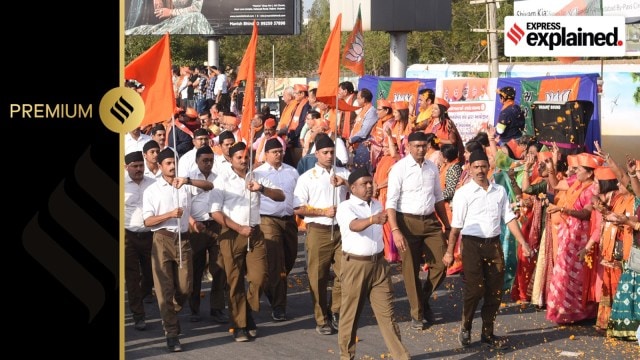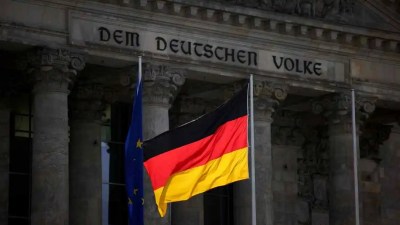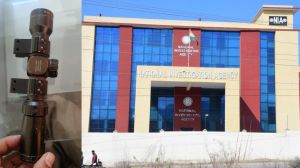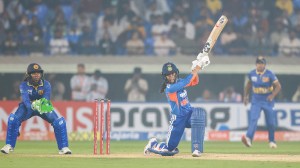Sunil Ambekar, the publicity in-charge of the Rashtriya Swayamsevak Sangh, on Monday (September 2) hinted at the Sangh’s support for a caste census. He said that “it is a well-established practice” to gather data for “welfare activities, particularly those targeting such communities or castes which are lagging behind” but cautioned against this being used as a “political tool for elections”.

Samanvay Baithak
Usually held in August-September, the purpose of this meeting is samanway (literally, “coordination”) between the Sangh and its frontal organisations, and to avoid any clashes between them. One of the most important parts of the meeting is the open session, in which delegates express their concerns on various issues.
The meeting in Palakkad was set to have in attendance 230 delegates from 32 organisations such as the Rashtra Sevika Samiti, Vanvasi Kalyan Ashram, Vishwa Hindu Parishad (VHP), Akhil Bharatiya Vidyarthi Parishad, BJP, Bharatiya Kisan Sangh, Vidya Bharati, Bharatiya Mazdoor Sangh, Sanskar Bharati, Seva Bharati, Sanskrit Bharati, Akhil Bharatiya Sahitya Parishad among others, in addition to members of the Sangh’s Kendra Karyakari Mandal (Central Executive Committee).
From the BJP, the meeting was attended by party president J P Nadda, general secretary (organisation) BL Santosh, and his deputy Shiv Prakash. Since the party came to power in 2014, this baithak has generated a lot of media interest.
For instance, the 2018 meeting, held in the village of Mantralayam in the Andhra-Karnataka border, saw then BJP chief Amit Shah cop criticism for the government’s failure to deliver on major Sangh Parivar promises such as the abrogation of Article 370 of the Constitution. One of the first major moves made by the BJP-led government after returning to power in next year’s elections was to revoke this section, which gave special status to the state of Jammu and Kashmir.
This year saw the Samanvay Baithak be held in Kerala for the first time. Last year’s meeting was held in Pune, Maharashtra.
Story continues below this ad
Pratinidhi Sabha
The Akhil Bharatiya Pratinidhi Sabha (ABPS), usually held in the first fortnight of March, is the Sangh’s biggest annual gathering, where organisational issues are discussed, grand strategy is planned, the Sangh’s activities over the past year are reviewed, and resolutions on important issues are adopted.
For instance, in the 2022 ABPS, held in Ahmedabad in Gujarat, the RSS fixed a target of opening at least 1 lakh shakhas (grassroots units) across the country by 2025. Submissions made in this year’s ABPS held in Nagpur show that the RSS currently has a network of more than 73,000 shakhas nationwide.
The ABPS is also the forum where the Sangh’s annual training camps (Karyakarta Vikas Vargas and Sangh Shiksha Vargs) which are held in May-June are planned and discussed.
The Sangh’s apex policy-making forum sees the participation of more than 1,500 delegates, with representatives (or pratinidhis) from most districts of the country, as well as pracharaks working abroad, in attendance. The bulk of these delegates are the akhil bharatiya pratinidhis (all-India representatives) of active swayamsevaks. One prantiya pratinidhi (state representative) represents around 50 active swayamsevaks, and akhil bharatiya pratinidhi represents 20 prantiya pratinidhis.
Story continues below this ad
Other delegates include members of the Sangh’s national executive, kshetra and prant (state) executives, members of the ABPS, all vibhag pracharaks, and certain office-bearers of various RSS-affiliated organisations. The Vishwa Hindu Parishad usually sends around 40 delegates, the most among the RSS affiliates, although the meeting’s composition is not set in stone.
The ABPS is held in venues across the country. Once every four years, the meeting is held in Nagpur, the birthplace of the RSS.
July baithak
The Prant Pracharak Baithak, more popularly known in RSS circles as the ‘July baithak’, is usually held over three days in mid-July. This meeting is purely meant to iron out organisational issues, and takes place just after the Sangh’s annual training camps, and just before its guru dakshina functions (annual events in which the Sangh raises funds for organisational expenses).
The July baithak sees those of the rank of prant pracharak and above in attendance. Pracharaks are individuals who work for the RSS full-time, without any remuneration. A total of around 150 delegates attend the meeting. The transfer of RSS functionaries, and major organisational shuffles are mostly announced in this meeting and during the Diwali meeting.
Story continues below this ad
This year’s July baithak was held in Ranchi, Jharkhand. Last year, the meeting was held in Udhagamandalam (Ooty) in Tamil Nadu.
Diwali baithak
The Kendriya Karyakari Mandal (KKM) is usually held in October-November around the festival of Deepawali. It is attended by nearly 300 delegates, including top RSS leadership and representatives of its above-mentioned anushangik (frontal) organisations.
Most RSS resolutions on important issues are discussed and passed during the KKM and the ABPS. For instance, the 1950 KKM held in Nagpur saw the passage of seven resolutions on a number of issues.
Resolution 7 was particularly interesting. It said: “The Republic Day 26th January, 1950 be celebrated as a festival in all the Sangh branches throughout the country as a day heralding severance of all connection of the British crown with the Government of the country. Appropriate meetings behold under the auspices of the Sangh and the function should include hoisting and salutation of the state Flag, speeches befitting the occasion and ‘Vande-Mataram’ at the close”. At the time, this meeting was held in early January.
Story continues below this ad
Last year’s Diwali baithak, held in Bhuj, Gujarat, passed no resolution.








































